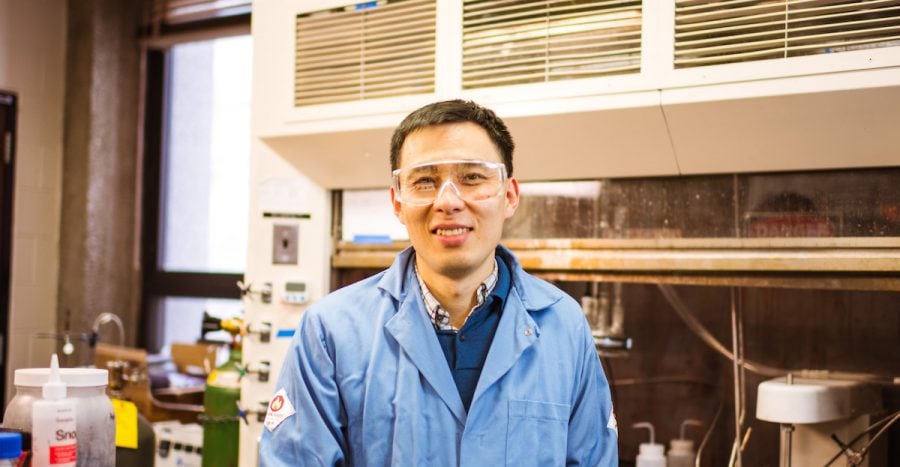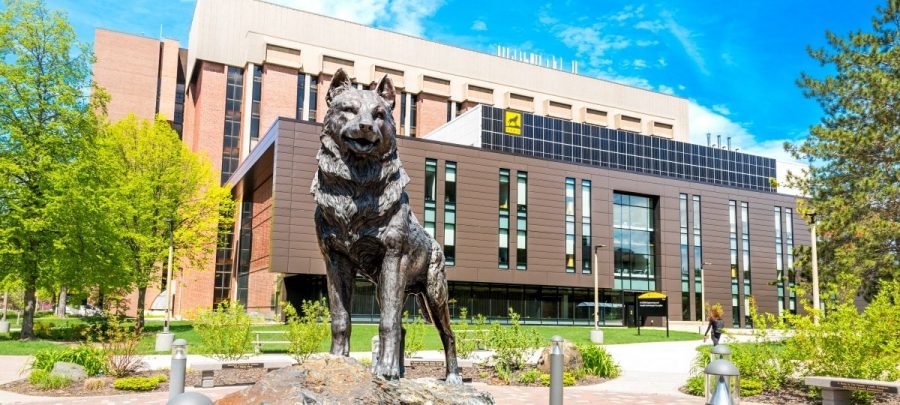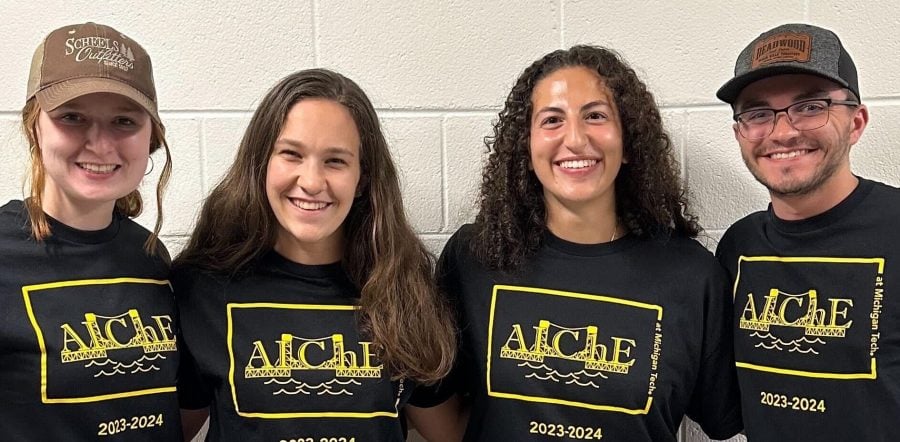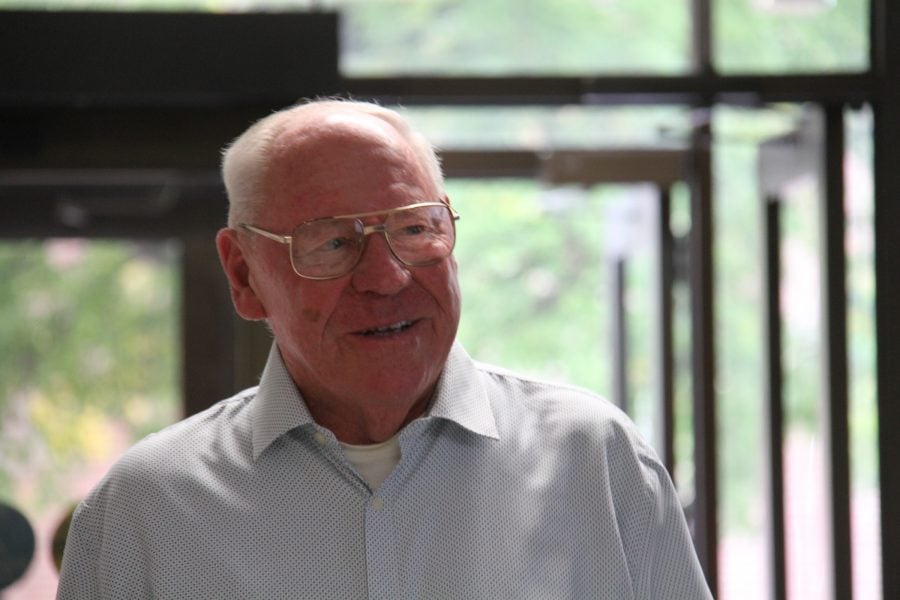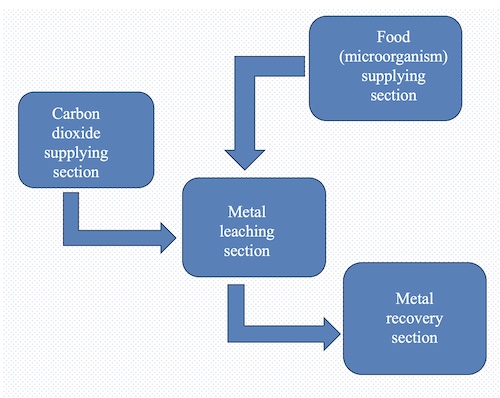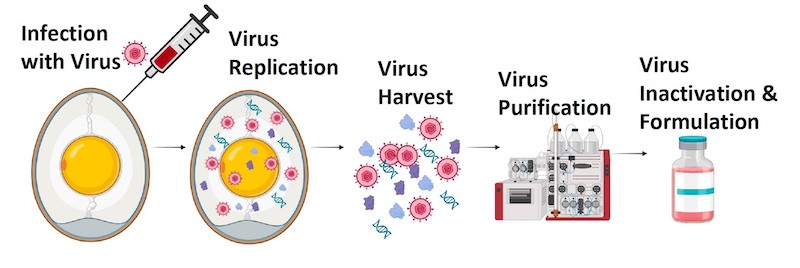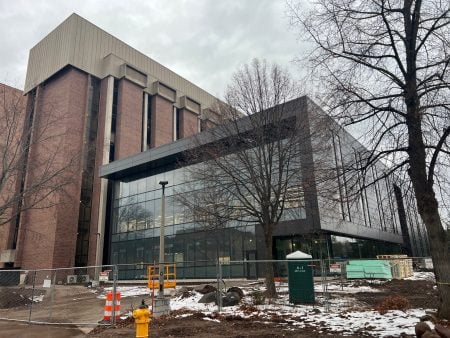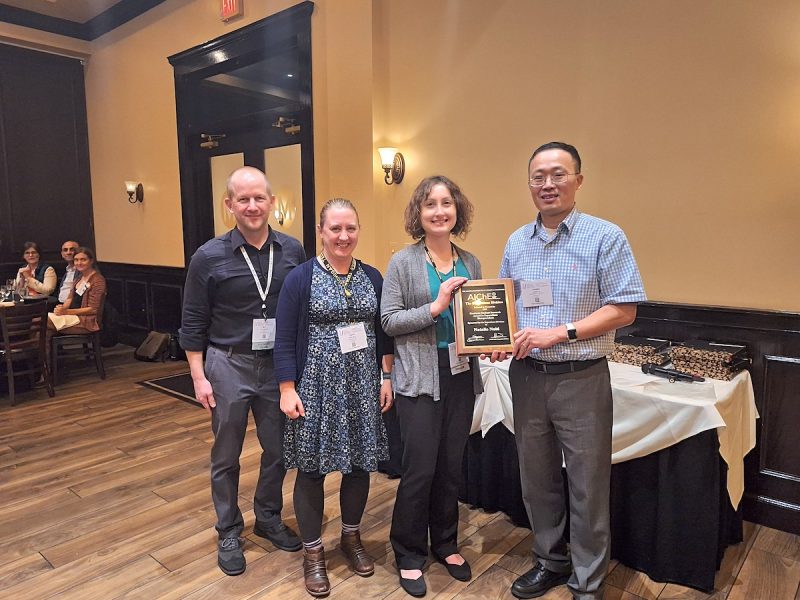Chemical Engineering faculty member Lei Pan’s research on battery recycling and improving the sustainability of mining through the recovery of critical minerals continues to draw regional and national interest.
Pan was recently quoted in a Bridge Michigan article, “Michigan’s electric energy future could be wasting away in a junk drawer,” which focused on the impact that recycling old electronic devices could have on the critical mineral shortage. The article described critical mineral shortage as a “looming choke point” affecting the nation’s energy transition and Michigan’s electric vehicle industry.
The article also noted that Pan’s lab will expand its research through the opening of a testing facility in summer 2025 through $8.1 million awarded to Michigan Tech through the federal Infrastructure Investment and Jobs Act.
